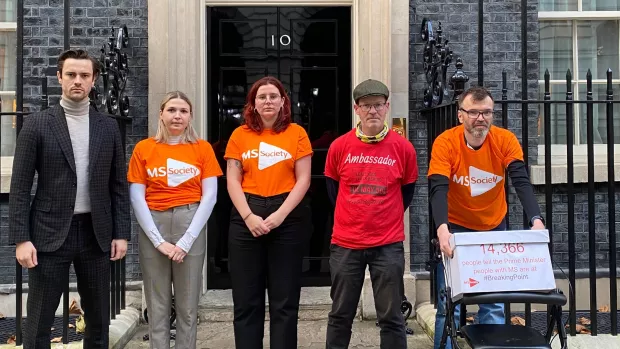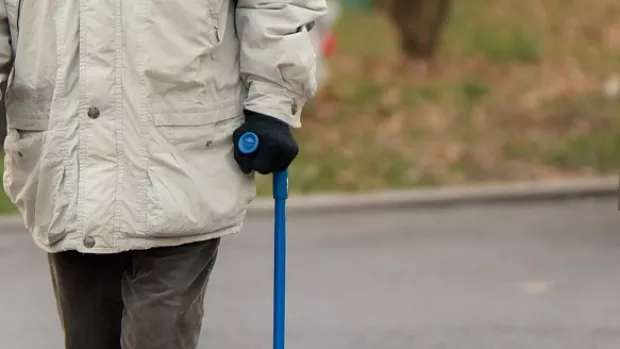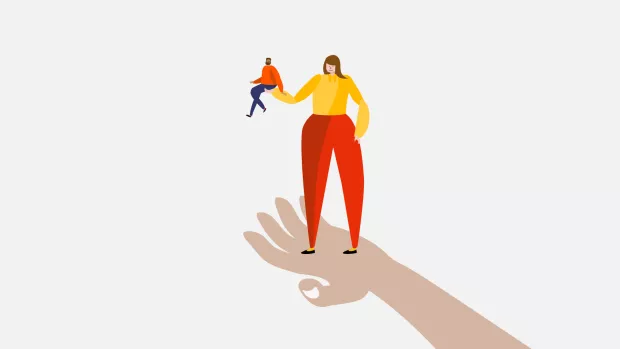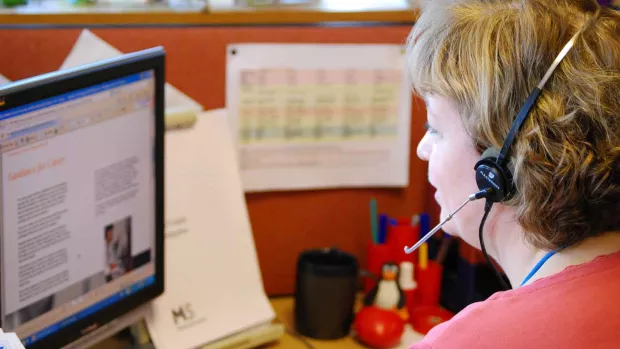
Cost of living support is failing unpaid carers
Carers give vital support to people with MS. But they’re some of the hardest hit by the cost-of-living crisis. Read about what we’re calling on the UK Government to do and the ways we’re supporting carers.
It’s estimated that over 10.6 million people in the UK give some form of unpaid care to family or friends. Unpaid carers offer important support for people with MS with things like household chores or personal, intimate care. Caring for someone can be costly. Many unpaid carers struggle to hold down jobs, take breaks from caring or afford essentials like food and heating.
There’s financial support for carers available from benefits or local support services. But we believe the cost of living support available for carers does not go far enough.
Unpaid carers are facing extreme financial hardship this winter. So we were disappointed that the Chancellor’s Autumn Statement didn’t include targeted support for carers. Millions of carers miss out on financial help because of strict eligibility criteria for benefits. And because of the lack of communication on what support is out there. The Government needs to take further action to support carers through this cost of living crisis.
The problem with Carer’s Allowance
Carer’s Allowance is a benefit for people who earn £132 a week or less after tax and give at least 35 hours of care for someone on benefits like PIP. You can only submit one claim even if you care for more than one person. And you can’t claim if you share caring responsibilities with someone already getting Carer’s Allowance.
Only 1.3 million people in the UK claim Carer’s Allowance, which is around ten percent of the estimated carer population. Part of the eligibility criteria looks at how much people earn and how much care they give. And this stops the majority of carers working full-time from getting Carer’s Allowance. The amount people get from Carer’s Allowance is also extremely low, coming to around £3,300 a year.
Carer’s Allowance and cost of living support
In his Autumn Statement, the Chancellor announced that all benefits, including Carer’s Allowance, will be increased in line with inflation. People on means-tested benefits will also get an additional Cost of Living Payment of £900. And people on disability benefits will get a £150 payment.
The Government told us 60% of working-age people on Carer’s Allowance will get one of these payments in 2023 or 2024. But Carer’s Allowance isn’t a means-tested benefit. So not everyone who gets the Allowance will get these payments.
These are welcome measures to support disabled people and people on benefits during the cost of living crisis. But they still don’t go far enough to support carers in the long-term. Without changes to the eligibility criteria and a significant increase in how much people get, most carers won’t get enough support from their Carer’s Allowance.
What we’re doing to support carers
There’s a long way to go to improve support for carers.
We recently joined the Carer Poverty Coalition to call on the Government to reform Carer’s Allowance. And to do this by improving the eligibility criteria and increasing how much the benefit is worth. We also handed in our #BreakingPoint petition last week, calling for better financial support for disabled people and their carers.
We’ll publish the results of our latest Family and Friends survey early next year. This research will spotlight the issues people who give care to people with MS are facing. This’ll help us call on UK governments to improve support for carers.
Finally, we’re also supporting Wendy Chamberlain MP’s Carer’s Leave Bill as it passes into law in the New Year. This is a Private Member’s Bill which will give unpaid carers the right to up to one week of unpaid leave from work.





